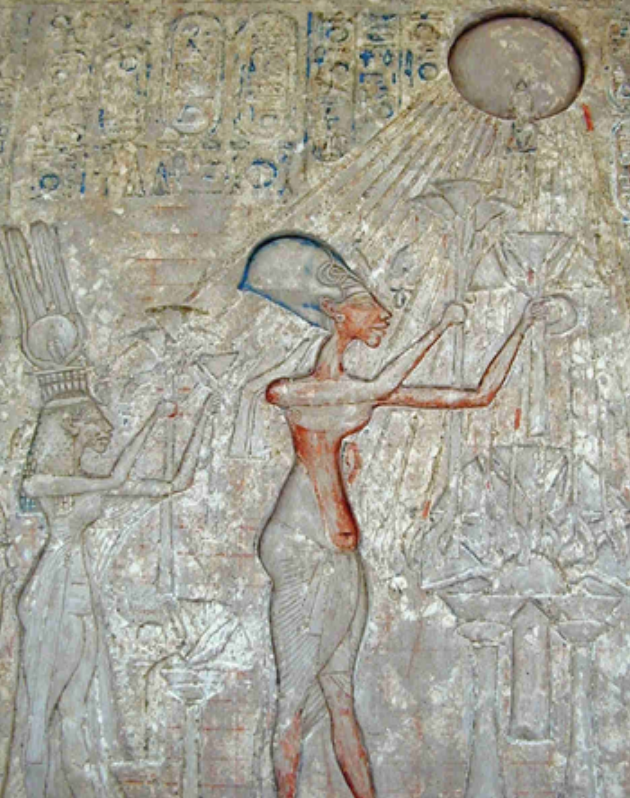This lecture is co-sponsored by the Harvard Department of Near Eastern Languages and Civilization and will take place in Fong Auditorium in Boylston Hall at Harvard University.
Atenism: A Revolution From Above
Case Studies
A lecture by
Professor Betsy M. Bryan
Vice Dean for Humanities and Social Sciences
Krieger School of Arts and Sciences
Alexander Badawy Professor of Egyptian Art and Archaeology
Johns Hopkins University
We don't often think about how similar or different ancient Egypt and its religion and politics may have been from our own world today. Yet frequently the strategies and tactics used by authoritarian rulers in ancient history are not greatly different from the modern era. One of the things that I have stressed in my 30-plus years of teaching at the university level is how much ancient Egyptians were like us -- not strange people who made mummies and worshipped animal-like deities, but humans with exactly the same concerns, hopes, and egos that we have. It is what keeps us connected to them over long times and not just for the brief splashy discoveries.
Akhenaten achieved a brand new religion, nearly that of monotheism, instituted it and built a new city to give it a home in a short 17-year reign. This talk examines that phenomenon by comparing it to similar types of religious revolutions in less distant historical eras: the Protestant revolution of the 16th century in England and the Bolshevik attempt to stamp out all religion except atheism in the early 20th century. It will then compare carefully with Akhenaten's steps to see what characteristics their tactics shared and what was successful and what not.

